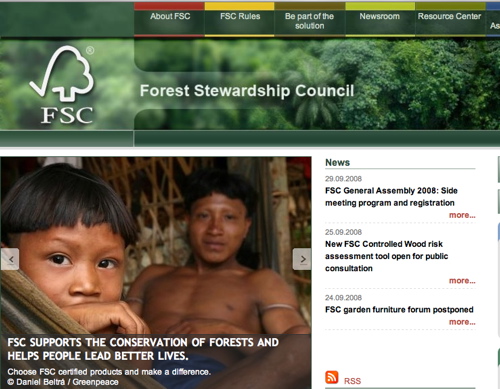 Three European countries have pledged a combined $180 million to the Forest Carbon Partnership Facility (FCPF), an institution created by the World Bank to compensate developing countries for reductions in carbon dioxide emissions achieved by preserving their forests.
Three European countries have pledged a combined $180 million to the Forest Carbon Partnership Facility (FCPF), an institution created by the World Bank to compensate developing countries for reductions in carbon dioxide emissions achieved by preserving their forests.
The contributions from Finland, Germany, and Norway bring FCPF’s capitalization to around $650 million, guaranteeing that developing countries will not suffer undue economic distress from preserving their forests in an effort to combat climate change.
“Forests continue to be lost as efforts to get the world on a greener, low-carbon growth path struggle to increase in speed and scale to meet the climate challenges ahead,” said Rachel Kyte, World Bank Vice President for Sustainable Development. “We are therefore very pleased with the continued commitment of the donor community to support FCPF’s groundbreaking work to curb forest loss.”
Deforestation releases 1.5 billion metric tons of carbon into the atmosphere each year, according to the Global Carbon Project, accounting for nearly one-fifth of total carbon emissions due to human activities. While deforestation rates have stalled in developed countries, the problem remains serious in the developing world.
The three countries donating to the FCPF are among the world’s most progressive in reducing carbon emissions. Norway, for example, meets over 99 percent of its energy requirements through hydropower plants, an entirely renewable energy resource. The country has also been praised as a “model society” for its widespread adoption of electric vehicles.
“I am excited to see the Carbon Fund getting ready to pay countries and large jurisdictions for verified emission reductions,” said Hans Brattskar, Norway’s Special Envoy for International Climate Policy. “The Carbon Fund will bring countries and companies together to create early demand for forest carbon with strong safeguards.”
The FCPF consists of two funds, one which offers financing to countries that are developing strategies for reducing deforestation and forest degradation, the other which provides payments the carbon emissions have been reduced as the result of such programs. The latter funds will receive the majority of the new donation.
“The additional German commitment is meant to be an encouragement to all countries that recognize the many benefits of forests for sustainable development, including local livelihoods, conservation of biodiversity and climate mitigation,” said Dirk Niebel, German Federal Minister for Economic Cooperation and Development. “This is why we are increasing results-based support to those that are actively assuming responsibility for halting and reversing forest loss.”
Like Norway, Germany is far ahead of the rest of the world in renewable energy adoption. Germany gets over one-quarter of its energy from renewable resources and has surpassed every benchmark it set to be 80 percent renewable-powered by mid-century.
The FCPF was launched in 2008 and includes 36 forest countries and 18 financial contributors.
Image credit: Wakx, Flickr






